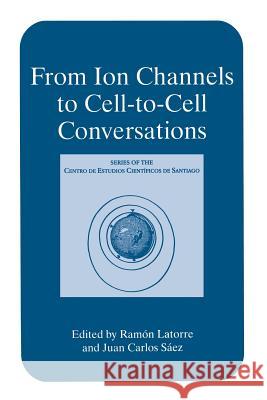From Ion Channels to Cell-To-Cell Conversations » książka
From Ion Channels to Cell-To-Cell Conversations
ISBN-13: 9781489917973 / Angielski / Miękka / 2013 / 504 str.
From Ion Channels to Cell-To-Cell Conversations
ISBN-13: 9781489917973 / Angielski / Miękka / 2013 / 504 str.
(netto: 1099,01 VAT: 5%)
Najniższa cena z 30 dni: 1151,28 zł
ok. 20 dni roboczych
dostawa w 2025
Darmowa dostawa!
Ion channels allow us to see nature in all its magnificence, to hear a Bach suite, to smell the aroma of grandmother's cooking, and, in this regard, they put us in contact with the external world. These ion channels are protein molecules located in the cell membrane. In complex organisms, cells need to communicate in order to know about their metabolic status and to act in a coordinate manner. The latter is also accomplished by a class of ion channels able to pierce the lipid bilayer membranes of two adjacent cells. These intercellular channels are the functional subunits of gap junctions. Accordingly, the book is divided in two parts: the first part is dedicated to ion channels that look to the external world, and the second part is dedicated to gap junctions found at cell interfaces. This book is based on a series of symposia for a meeting on ion channels and gap junctions held in Santiago, Chile, on November 28-30, 1995. The book should be useful to graduate students taking the first steps in this field as well as a reference for the aficionado. The aim of the meeting was mainly to show the impact of various modern techniques, including cell biology, molecular biology, biophysics, and molecular- genetics techniques in the study of these ubiquitous intrinsic membrane proteins. Molecular-genetics techniques paved the road to the manipulation of the channel- forming molecules.











